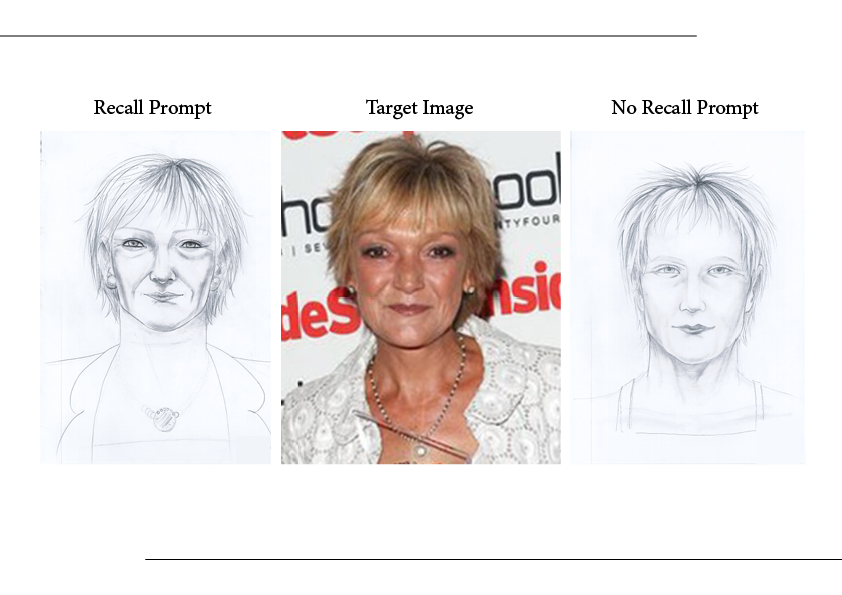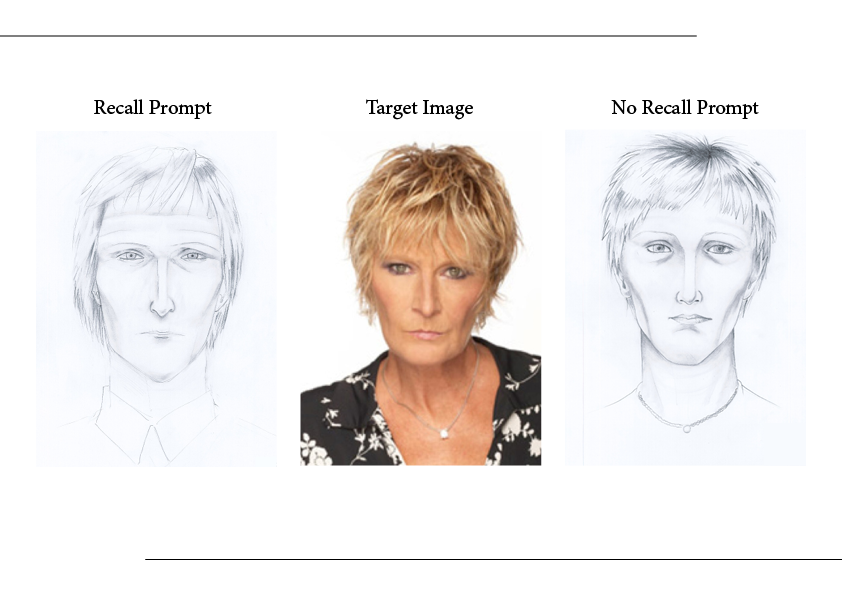Forensic Art
Composite Sketching
Thesis project
Composite art can be defined as:
“[…] a technique of creating a sketch of an unknown subject from individually described parts into a single graphic image. It is intended to be a likeness or similarity of a victim’s or witness’s perception of the subject at the time the subject was seen.”
Stephen Mancusi, The Police Composite Sketch 2010:16
The aim of this research was to investigate whether a prompt to recall a face would increase the overall likeness of a composite sketch that was based on a target face.
It is worth mentioning that I, as the sketch artist, did not have any reference images from which I was drawing, nor did I know the people who were being described.
All sketches in the slideshow below were done solely based on ‘witness’ statements. This was to recreate the conditions under which a police sketch artist would draw a composite sketch when using a description from a genuine witness or victim of a crime. Each 'witness' (participant) viewed the target face for just 30 seconds.
To the left of each target image, you will see the sketch based on a description where the ‘witness’ was prompted to write down everything they remembered about the target face they had seen 3-4 hours prior. To the right of the target image, you will see the sketch based on a description from a ‘witness’ who did not receive any recall prompt; these participants did not have the opportunity to recall the image they had seen until the cognitive interview, 24 hours after they had first seen the face.
The motivation for this research stems from hypothesising the following:
Injection of a recall prompt to recall a target face before a cognitive interview
↓
improves the quality/quantity of information recalled during cognitive interview
↓
a more accurate description
↓
a composite sketch with a better likeness
↓
higher likelihood of recognition by people familiar with the target face
↓
higher frequency of accurate naming by people familiar with the target face









